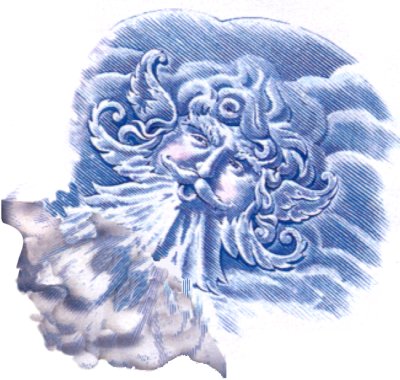Mein Glück
Seit ich des Suchens müde ward,
Erlernte ich das Finden.
Seit mir ein Wind hielt Widerpart,
Segl' ich mit allen Winden.
–Friedrich Nietzsche
The first line of this poem I believe that the poet is searching for something. He is searching until he is searching tirelessly, probably to the point of exhaustion. The second line talks about how the poet learned to find. The third line discusses how the wind held the poet as an opponent. I am not sure what "Segl'" means but the last part means I am with all the wind. Mein Glück translates into "My Happiness".
I believe from my horrible understanding of German that the poet is searching for happiness. His search has been tiresome. I believe what he is saying is that you can't search for happiness you have to find. When you are searching you are seeking it, when you find something it comes by surprise. It is a way of looking at life and by looking at your own life from a different lens you would be surprised to find happiness in it. For example, I look at my own life. I am living a simple life now. I sought out to find happiness in trying to make money and defining success with a salary. With the economy I have now looked at my life and see that I am struggling financially being in the service industry but I do not have the stress from work that comes from a high paying job following me home. I am happier than ever I found happiness because I stopped searching for happiness.

The speaker then talks about how the wind is his opponent and how he is being held to being enemies. It almost like the wind is holding the speaker captive. I am not sure what the speaker means by he is with all the wind. Mainly because I do not know the German word before he says that. Maybe it is "As I am with all the wind." That is my interpretation. Going back to my example I see the wind as society. That society is holding the speaker captive saying that his idea of happiness is wrong, that you must conform. When he says with all the wind, I look at it as with all societies. That every society may take issue with this thought of happiness.
Let's take a look at the English translation now.
My Happiness
Since I grew tired of the chase
And search, I learned to find;
And since the wind blows in my face,
I sail with every wind.
–Friedrich Nietzsche translated by Walter Kaufmann
The English translation I feel still represents part of my central idea of learning to find happiness not to search for it. However the idea of the wind has completely changed it the wind is no longer representing society. It represents much more than that. The wind represents the struggle of finding happiness. It is like a proclitic word in a sentence. It doesn't seem much when it is a slight breeze but it is more powerful than one thinks (I know this is a horrible metaphor but hey I had to use the word of the day somehow). When the speaker says he can sail with every wind, it means that he can become happy in any form of struggle because he knows how to find happiness in any situation by dealing with what he was fallen into.
I think it is about learning to "roll with the punches." If there is going to be wind in your face to slow you down, build a sail and use it.
ReplyDeleteI like that idea quite a bit. It is giving the universe the finger and saying fudge off.
ReplyDeleteLittle bit late, but I think that this is not what Nietzsche meant. It's a poem about his perspectivism. He is looking for the 'objective truth', like almost every philosopher. He grew tired of the chase, and learned to find. By 'find' he didn't mean finding an object, but to find something like: 'i find this funny'. It is about rejecting objectivism and accepting subjectivism, accepting different perspectives. The second part of the poem, 'And since the wind blows in my face, I sail with every wind' is an expression of that perspectivism. It is not a very good translation, In German it says something like: 'since I had the wind once against me'. Then Nietzsche realised that it's all a matter of perspective: did I had the wind against me, or did the wind had me against him?. Now he sails with every wind: he gave up the search for objective truth.
ReplyDelete
ReplyDelete“Since I became weary of searching,
I learned to find.
Since a wind opposed me,
I sail with all winds.”
The poem's themes of acceptance and adaptability are a practical enactment of ‘amor fati,’ affirming that all life's challenges must be embraced.
I think that each translation offers a unique interpretation, so your perspective adds valuable diversity to understanding Nietzsche's work! I hope you don't mind a small suggestion, but when discussing Nietzsche's work, you might consider using a term like 'worn out' instead of 'tired.' I think it subtly deepens the existential undercurrent and better captures the philosophical weight of his concepts.